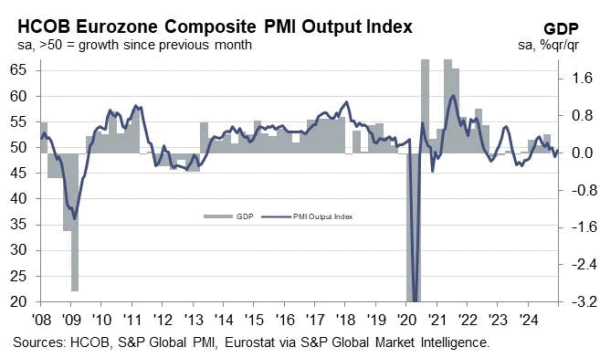Eurozone PMI Services rose notably from 49.5 to 51.4, marking a return to expansion territory. However, PMI Manufacturing remained static at 45.2, firmly in contraction. Consequently, PMI Composite edged up from 48.3 to 49.5, signaling ongoing weakness in overall economic momentum.
Cyrus de la Rubia, Chief Economist at Hamburg Commercial Bank, noted that the service sector’s rebound is a “welcome boost” to the Eurozone economy, while manufacturing continues to face a severe downturn.
Inflationary pressures remain a concern, particularly in the services sector. Input costs have risen for the third consecutive month, largely due to higher wage agreements, with businesses passing these costs onto customers. This persistent inflation challenge informed ECB’s cautious decision earlier this month to cut rates by just 25bps.
Germany and France, the Eurozone’s largest economies, add to the uncertainty with ongoing political challenges, delaying necessary reforms to stimulate growth. Despite this, de la Rubia suggested there is potential for “positive surprises” in 2025 if clearer economic policies emerge from future governments.

